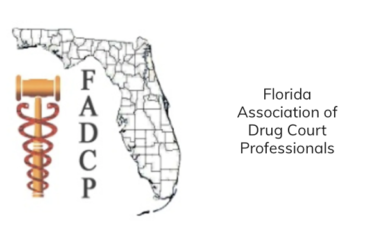Dr. Robert DuPont Talks Chemical Slavery – Justice Speaks Podcast
50 years ago, Robert DuPont, M.D. started working in a state prison as a psychiatrist to see if he could make a difference in those prisoners’ lives. As he discusses in this episode of Justice Speaks, he recognized fairly early on that the rise in crime was directly tied to the increase of the heroin epidemic. It was that early recognition and the efforts that followed that brought Dr. DuPont to national prominence as the First Director of the National Institute on Drug Abuse (NIDA) [link] and the second White House Drug Chief, which is now part of the Office of the National Drug Control Policy (ONDCP) [link] office.
In this episode of Justice Speaks, JSI Vice President David Wallace discusses with Dr. DuPont his lifelong effort to combat the issue of substance use disorders as well as his latest book, Chemical Slavery: Understanding Addiction and Stopping the Drug Epidemic.
Early On
When Dr. DuPont first started out in the District of Columbia’s prison system, he found a connection between the increase in crime and the increase in heroin. Not someone to sit by the side, Dr. DuPont looked into what would work with dependent individuals and based on that investigation, with the support of the mayor of Washington D.C., Dr. DuPont implemented one of the first ever methadone clinics in 1970. In the first three years, they treated 15,000 individuals who were dependent on heroin, and in the process reduced the crime rate by half, and deaths due to overdoses were reduced from 70 to 4. As Dr. DuPont states, it was “a pretty wonderful public health demonstration of a serious social problem.” From that phenomenal start, both the White House and Congress recognized that Dr. DuPont was someone who should be working at the national level, and he became the second White House Drug Chief and the First Director of NIDA.
Drug Policy
As Dr. DuPont notes, the thought that this is either a criminal justice problem or a public health problem misses the point. Both can work together, and both can have a role in supporting people to achieve recovery. Without the criminal justice effort to reduce supply we would be awash with drugs, and the justice system can be a road towards recovery, such as with Drug Treatment Courts. Treatment can work, but a “voluntary drug treatment system is about as effective as a voluntary penal system.” It is the leverage of the justice system that keeps users involved with treatment.
Then and Now
In the 1960’s, the discussion focused on heroin; today the discussion is on opioids and prescription medications. However, the problem today is not specifically an opioid problem, but a poly-drug problem. According to Dr. DuPont, 95% of the people who die from drug overdoses have more than one drug in their system, including marijuana and alcohol. The poly-drug problem is evident in drug overdoses as well as in individuals who are stopped for drugged driving. Rarely has the person used only one substance.
The Hijacked Brain
Using chemicals stimulate brain reward intensely for “pleasure.” As Dr. DuPont states, it is ironic that the drug use is supposed to be for pleasure because, in the end, the result is misery. The brain becomes hijacked and the person has to continue using the drug, despite significant life problems and also dishonesty. The person becomes dishonest to themselves as well as to family and friends so he or she can continue using. These two features (continued use despite adverse consequences and dishonesty) demonstrate the serious and significant tenacity of the person’s substance use disorder. According to Dr. DuPont, the disease is “cunning, baffling, and powerful.” The brain has been changed. In other words, the “brain falls in love with the chemical.” However, thanks to science, with new technology and research developed over the past 50 years, we have significantly advanced the treatment efforts.
2018
Today’s drug problem is even more concerning to Dr. DuPont than it was 50 years ago. “Business” people, individuals who are looking for the quick dollar in the illegal market, are now promoting more drugs and even new drugs that are all cheaper and more easily delivered. It is that combination that demonstrates the true threat.
Chemical Slavery
The title of Dr. DuPont’s book demonstrates that the substance dependent person is a slave to the substance. The person using the chemical becomes a different person. Thanks to the growth and evolution of recovery, Dr. DuPont’s book is about those who have come out on the other side of the substance use disorder. Today’s society has a massive recovery community supporting others and leading the way.
Dr. DuPont believes that the book can be useful in raising the discussion and providing important information from his perspective. He approaches the book with two focuses: 1) What is the disease of addiction?[1] and 2) What should be done about the epidemic? Both sections chronicle the private effort and a public effort.
Dr. DuPont notes that he was present in the White House when NIDA and the Drug Enforcement Agency (DEA) were created; he knows the leaders of NIDA, DEA, and the ONDCP. He has also been a practicing psychiatrist for 50 years interacting with his patients, learning what makes a difference in their lives over time. He brings to this book those experiences and the knowledge he gleaned over the last 50 years that he hopes will be useful.
Questions to Ask
To get the true perspective of a substance use disorder, Dr. DuPont suggests that we ask those individuals we know who are in recovery three specific questions:
- What was your life like when you were using?
- What happened to get you to stop? What event?
- What is your life like now?
A person’s life in recovery is many times better than it ever was before, even before the drug use. Typically having confronted that chemical slavery, the person has become a better person because of the challenges he or she overcame. A great example of overcoming challenges is listening to participants at a Drug Treatment Court graduation.
Dr. DuPont notes that we should respect the person whether or not they are using, but the drug use itself deserves social disapproval. Most importantly, he states that we give great respect to the person in recovery who is “emancipated from the slavery.”
Prevention
Over the years, prevention has made a difference for our youth and it can have a significant impact on adult substance use disorders. Over 90% of adult substance use disorders started in the person’s teenager years when the brain is the most vulnerable to chemicals.
There is the conclusion that the “war on drugs” has failed which usually means we should make drugs legal. However, the effort hasn’t failed. Of course, there are other and additional ways to respond, but it is vital to understand that prevention has worked for millions of people as well as treatment. Remember, that as a global society, there has never been this kind of issue—the modern drug epidemic where we have multiple drugs with high potency and widely spread in the population. It has never happened before.
It is important to note that there has been a significant increase in the number of teenagers abstaining from alcohol or other drugs. Because of the teenager’s vulnerable brain, prevention is all about discouraging adolescents to use alcohol, nicotine or marijuana. In 1983, only 3% of high school seniors had not tried alcohol, nicotine or cigarettes. In 2017, that increased to 26%. The dangers of alcohol and other drugs have been discussed and emphasized and it is having an impact.
To continue the effort of prevention, Dr. DuPont recommends that parents talk to their children and promote the idea that no drug –nicotine, alcohol, marijuana or other drugs – should be used at any time. Make it a simple choice for teens – don’t use any drugs. Once they start using one, it becomes easier to use the next and the next and the next. The standard for teen health is clear—no alcohol or other drugs—and parents need to set the standard.
To obtain Dr. DuPont’s book, Chemical Slavery, click here.
[1] Throughout the discussion, Dr. DuPont uses the term “addiction” instead of the phrase “substance use disorder.” He notes that the people who are addicted use that term and he will continue to use the same term they use.
Watch part of the discussion here
Get more articles like this
in your inbox
Subscribe to our mailing list and get the latest information and updates to your email inbox.
Thank you for subscribing.
Something went wrong.









